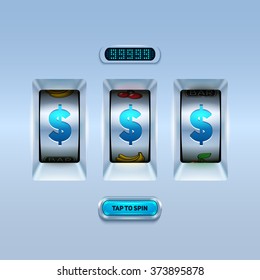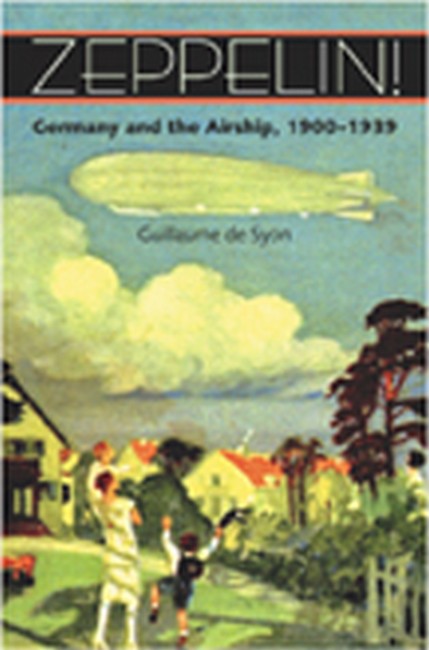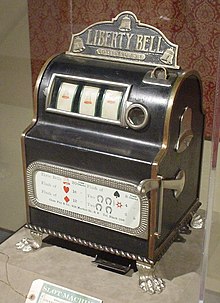Old Fashioned Poker Machine Dan Word
Old Vegas Slots – Play Original Classic Slot Machine Games Free Get ready to play Old Vegas Slots in a stunning new way. Take a journey and visit world-famous Las Vegas landmarks and play free classic 🍒777 slot machines. Your Vegas road trip will feature HUGE progressive jackpots, mega payouts & real casino odds. The best 🎰 classic slots game got even better! Play the Downtown Vegas. Every old-fashioned candy comes in a delectable bulk size so they're perfect for big retro themed parties or to give away in old timey gift baskets. Get ready to be filled with nostalgic bliss every time you shop for this section of amazingly delicious vintage candy! Old-fashioned Free thesaurus definition of people who are old fashioned or do not like change from the Macmillan English Dictionary - a free English dictionary online with thesaurus and with pronunciation from Macmillan Education.
- Old Fashioned Poker Machine Dan Words With Friends
- Old Fashioned Poker Machine Dan Words
- Old Fashioned Poker Machine Dan Word Art
- Old Fashioned Poker Machine Dan Word Search
Tilt originated as a poker term for a state of mental or emotional confusion or frustration in which a player adopts a less than optimal strategy, usually resulting in the player becoming over-aggressive. Tilting is closely associated with another poker term, 'steam'.
Placing an opponent on tilt or dealing with being on tilt oneself is an important aspect of poker. It is a relatively frequent occurrence due to frustration, animosity against other players, or simply bad luck.
The old-fashioned is one of the oldest mixed drinks in the cocktail canon. (Original name: whiskey cocktail, which became old-fashioned whiskey cocktail, and then just old-fashioned.) It is a stirred drink, usually built in the glass in which it is served. Both rye and bourbon are suitable base spirits.
One possible origin of the word 'tilt' is as a reference to tilting a pinball machine. The frustration from seeing the ball follow a path towards the gap between the flippers can lead to the player physically tilting the machine in an attempt to guide the ball towards the flippers. However, in doing so, some games will flash the word 'TILT' and freeze the flippers, causing the ball to be lost for certain; as in poker, this suggests that over-aggression due to frustration leads to severely detrimental playing techniques.[1]
While 'tilting' originally applied to poker, it has recently become a common term when talking about other games, especially chess and esports titles. Tilting in esports causes players to 'lose control due to anger'.[2]
Common Causes of Tilt[edit]

The most common cause of tilt is losing, especially being defeated in a particularly public and humiliating fashion. In poker, a bad beat can upset the mental equilibrium essential for optimal poker judgment, causing frustration. Another common cause of tilt is bad manners from other players causing frustration which eventually leads to tilting.
Though not as commonly acknowledged or discussed, it is also quite possible to go on 'winner's tilt' as a result of a positive trigger: such as winning unexpectedly, or going on a string of good luck. Strong positive emotions can be just as dizzying and detrimental to one's play as negative ones. Tilting and winner's tilt can both lead to the same habits.
Advice when tilted[edit]
For the beginning player, the elimination or minimization of tilt is considered an essential improvement that can be made in play (for instance in the strategic advice of Mike Caro). Many advanced players (after logging thousands of table-hours) claim to have outgrown 'tilt' and frustration, although other poker professionals admit it is still a 'leak' in their game.
One commonly suggested way to fight tilt is to disregard the outcomes of pots, particularly those that are statistically uncommon. So-called 'bad beats,' when one puts a lot of chips in the pot with the best hand and still loses, deserve little thought; they are the product of variance, not bad strategy. This mindset calls for the player to understand poker is a game of decisions and correct play in making the right bets over a long period of time.
Another method for avoiding tilt is to try lowering one's variance, even if that means winning fewer chips overall. Therefore, one may play passively and fold marginal hands, even though that may mean folding the winning hand. This may also imply that one plays tightly— and looks for advantageous situations.
Once tilt begins, players are well-advised to leave the table and return when emotions have subsided. When away from the table, players are advised to take time to refresh themselves, eat and drink (non-alcoholic) if necessary, and take a break outside in the fresh air.
If none of these work in lessening tilt, players are advised to leave the game and not return to playing until they have shaken off the results that led to the tilt.
The intent of the advice is to prevent the upset person from letting negative emotions lead to bigger losses that can seriously hurt one's bankroll.
Tilt must be taken seriously, requiring immediate attention following its presence. The progression in poker for chronically tilted players may be significantly hindered as their judgement becomes progressively impaired as agitation becomes more prominent. Paying close attention to playing statistics can assist in preventing this, as a statistical overview of recent hands can reduce the players likelihood to play impulsive hands habitually.[3]
Tilting others[edit]
The act of putting an opponent on tilt may not pay off in the short run, but if some time is put into practicing it, a player can quickly become an expert at 'tilting' other players (with or without using bad manners). In theory, the long-run payoff of this tactic is a monetarily positive expectation.
Common methods of putting a table on tilt include:
- Playing junk hands that have a lower chance of winning in the hope of either sucking out and delivering a bad beat (which can be an enjoyable occasional style which will make the table's play 'looser') or bluffing the opponent off a better hand (with the option of showing the bluff for maximum tilting effect).
- Victimising individuals at the table, (which is often considered a more old-fashioned tactic, identified with 1970s 'verbal' experts such as Amarillo Slim.)
- Pretending intoxication, i.e. hustling, excellently demonstrated by Paul Newman against Robert Shaw in The Sting (although his technique included cheating).
- Constant chattering, making weird noises and motions whenever you win a hand, or other erratic behavior is a 'tilting' or 'loosening' approach first discussed by Mike Caro.
- Taking an inordinate or otherwise inappropriate amount of time to announce and show your hand (also called 'slow-rolling') at the showdown. (Such deliberate breaches of etiquette have the side effect of slowing play and risking barring, thereby limiting the earnings of the expert player. For this, and other social reasons, such tactics are mostly associated with novices.)
These antics can upset the other players at the table with the intention of getting them to play poorly.
See also[edit]
References[edit]

- ^Gambling with the Myth of the American Dream by Aaron M. Duncan
- ^What to pay attention to in the OpenAI Five Benchmark
- ^'HowToLearnPoker.net: Being on tilt can ruin your poker bankroll'. howtolearnpoker.net. Retrieved 2011-08-24.
Whether on a riverboat atop the Mighty Mississippi or in the smoky dimness of a mining camp saloon, a lucky draw could turn a broken man into a winner. In the days of the frontier west, poker was king with the mustachioed likes of Wild Bill Hickok, Doc Holliday, “Canada” Bill Jones, Wyatt Earp, Bat Masterson, and hundreds of others.
In the old west towns of Deadwood, Dodge City, Tombstone, and Virginia City, gamblers played with their back to the wall and their guns at their sides, as dealers dealt games with names such as Chuck-A-Luck, Three Card Monte, High Dice, and Faro, by far the favorite in the wild west saloons.
The exact origin of poker is unknown but many have speculated that it originated from the 16th-century Persian card game called As Nas. Played with a 25 card deck containing five suits, the rules were similar to today’s Five Card Stud. Others are of the opinion that it was invented by the Chinese in 900 A.D. In all likelihood, the game derived from elements of various gambling diversions that have been around from the beginning of time.
Poker in the United States was first widely played in New Orleans by French settlers playing a card game that involved bluffing and betting called Poque in the early 1800s. This old poker game was similar to the “draw poker” game we play today. New Orleans evolved as America’s first gambling city as riverboat men, plantation owners and farmers avidly pursued the betting sport.
The first American gambling casino was opened in New Orleans around 1822 by a man named John Davis. The club, open twenty-four hours a day, provided gourmet food, liquor, roulette wheels, Faro tables, poker, and other games. Davis also made certain that painted ladies were never far away. Dozens of imitators soon followed making the gaming dens the primary attraction of New Orleans. The city’s status as an international port and its thriving gambling industry created a new profession, called the card “sharper.”
Professional gamblers and cheats gathered in a waterfront area known as “the swamp,” an area even the police were afraid to frequent, and any gambler lucky enough to win stood a good chance of losing his earnings to thieves outside of the gambling rooms and saloons.

Gambling was outlawed in the rest of the huge Louisiana territory in 1811, but New Orleans continued to enjoy the prosperity brought by gambling for more than 100 years. Though the law was passed for the entire Louisiana Purchase, it was obviously not enforced and casinos and gambling began to spread.
As commerce developed on the waterways, gambling traveled up the Mississippi and Ohio Rivers, then westward via covered wagons, and later on the railroad. The first written reference in the United States came from Jonathan H. Greer in 1834 when he referred to the amusement as the “cheating game.”
Old Fashioned Poker Machine Dan Words With Friends
Some of the first gambling dens outside of New Orleans were started on river towns that were popular with both travelers and professional gamblers. It was here that many “sharpers” preyed on these transient people, with their pockets filled with their life savings, on the way to the new frontier. The dishonest gamblers also often ran confidence games and other con artist businesses, in order to gaff the unwary pioneers. A host of companies specialized in manufacturing and selling card cheating devices. One riverboat gambler named George Devol was so proud of his ability to slip a stacked deck into a game that he once used four of them in one poker hand, dealing four aces to each of his four opponents.
It was professional gamblers who were largely responsible for the poker boom. Considering themselves as entrepreneurs, they took advantage of America’s growing obsession with gambling. Though having a high opinion of themselves, the public viewed them with disdain, considering them as contributing nothing to society. This viewpoint was often warranted in many cases, as a large number of professional gamblers often cheated in order to win. To be successful, professional gamblers had to have irresistible personalities in order to attract men to play with them. Often dressing in dandy clothes, their success depended partly on chance and partly on skill, sometimes on sleight of hand, and in the Old West, their shooting abilities. By the 1830s, citizens began to blame professional gamblers for any and every crime in the area and gambling itself began to be attacked.
James Bowie
It was during these riverboat gambling heydays that an interesting story occurred in 1832. On a Mississippi steamboat, four men were playing poker, three of which were professional gamblers, and the fourth, a hapless traveler from Natchez. Soon, the young naïve man had lost all his money to the rigged game. Devastated, the Natchez man planned to throw himself into the river; however, an observer prevented his suicide attempt, and then joined the card game with the “sharps.” In the middle of a high stakes hand, the stranger caught one of the professionals cheating and pulled a knife on the gambler, yelling, “Show your hand! If it contains more than five cards I shall kill you!” When he twisted the cheater’s wrist, six cards fell to the table. Immediately, the stranger took the $70,000 pot, returning $50,000 to the Natchez man and keeping $20,000 for his trouble. Shocked, the Natchez man stuttered, “Who the devil are you, anyway?” to which the stranger responded, “I am James Bowie.”
Anxious citizens of these river port towns grew more and more wary of the confidence men that were multiplying so quickly. In Vicksburg, Mississippi, the citizens’ rage had become so increased by 1835, five cardsharps were lynched by a vigilante group. It was soon after this that many of the gamblers moved onto the riverboats, benefiting from the transient riverboat lifestyle.
At the conclusion of the Civil War, America pushed her boundaries West, where the frontier was born of speculators, travelers, and miners. These hardy pioneers had high risk-taking characteristics, making any gambling situation a popular pastime for these rough and tumble men of the frontier. In virtually every mining camp and prairie town, a poker table could soon be found in each saloon, surrounded by prospectors, lawmen, cowboys, railroad workers, soldiers, and outlaws for a chance to tempt fortune and fate.
During the California Gold Rush of 1849 gambling houses sprouted up all over northern California, offering a wide array of not only gaming tables but also musicians and pretty women to entertain the gamblers as they played. It was at this time that dance halls began to appear and spread throughout later settlements. While these saloons usually offered games of chance, their chief attraction was dancing. The customer generally paid 75¢ to $1.00 for a ticket to dance, with the proceeds being split between the dance hall girl and the saloon owner. After the dance, the girl would steer the gentleman to the bar, where she would make an additional commission from the sale of a drink.
A popular girl would average 50 dances a night, sometimes making more a night than a working man could make in a month. Dance hall girls made enough money that it was very rare for them to double as a prostitute, in fact, many former “soiled doves” found they could make more money as a dance hall girl.
As the Gold Rush gained momentum, San Francisco replaced New Orleans as the center for gambling in the United States. Over one hundred thriving saloons and brothels met the sailors and fortune-seeking travelers as they disembarked at the San Francisco harbor and stumbled into the infamous Barbary Coast Waterfront District.
Faro was by far the most popular and prolific game played in Old West saloons, followed by Brag, Three-card-monte, and dice games such as High-low, Chuck-a-luck, and Grand hazard. It was also about this time that gambling began to invite more diversity including Hispanics, blacks, Chinese and women in the games. Three of the more famous women gamblers of this time were Calamity Jane, Poker Alice, and Madame Mustache.
Before long, many of the Old West mining camps such as Deadwood, Leadville, and Tombstone became as well known for gunfights over card games than they did for their wealth of gold and silver ore. Professional gamblers such as Doc Holliday and Wild Bill Hickok learned early to hone their six-shooter skills at the same pace as their gambling abilities. Taking swift action upon the green cloth became part of the gamblers’ code – shoot first and ask questions later.
One such occasion that clearly showed the quick and violent code was when Doc Holliday was dealing Faro to a local bully named Ed Bailey in Fort Griffin, Texas. Bailey was unimpressed with Doc’s reputation and in an attempt to irritate him; he kept picking up the discards and looking at them. Peeking at the discards was strictly prohibited by the rules of Western Poker, a violation that could force the player to forfeit the pot.
Though Holliday warned Bailey twice, the bully ignored him and picked up the discards again. This time, Doc raked in the pot without showing his hand, nor saying a word. Bailey immediately brought out his pistol from under the table, but before the man could pull the trigger, Doc’s lethal knife slashed the man across the stomach. With blood spilled everywhere, Bailey lay sprawled out dead across the table.
Inevitably there were liquored up miners and cowboys who would shoot up the saloons and sometimes the poker winner when they were angered by their losses. Even Wild Bill Hickok, who is mostly known for his heroics and prowess with a six-shooter, took advantage of those abilities when faced with a loss in Deadwood, South Dakota. Shortly before midnight after a night of drinking and gambling, Hickok was playing a two-handed game with a man named McDonald when the stakes began to increase with every card dealt.
When the hand was complete and the middle of the table piled high with money, McDonald showed his hand, displaying three jacks. To this, Hickok responded, “I have a full house – aces over sixes,” then threw his hand face down upon the table. However, when McDonald picked up Hickok’s hand, he exclaimed, “I see only two aces and one six.” Wasting no time, Wild Bill drew his six-shooter with his right hand and replied, “Here’s my other six.” Then he flashed a bowie knife with his left hand, stating, “And here’s my one spot.” McDonald immediately backed down saying coolly, “That hand is good. Take the pot.”


Old Fashioned Poker Machine Dan Words
By the end of the 19th century, gambling had spread like wildfire through the many mining camps, multiplying as the gold and silver hunters spread across the West, searching for new strikes. It was about this time that both states and cities started to take advantage of these growing ventures by taxing gambling dens and raising money for their communities.
It was also during the late 1800s that many towns and states across the western frontier began to enact new laws against gambling. Attempting to gain new levels of respectability, the laws primarily targeted the “professional gambler” more than gaming in general. Some types of gambling were made illegal, while limits were established on others. Initially, anti-gaming laws were weak and had little real effect on gambling, as they were difficult to enforce, establishments simply introduced new variants, and penalties were light.
Faro gambling card game about 1900.
However, the laws were gradually strengthened and ironically, Nevada was one of the first states in the West to totally make gambling illegal in 1909. Other states soon followed suit and true to the worst fears of the Puritans, gangsters combined liquor and gambling in the cities of New York, Cleveland and Chicago during the 1920s.
By the time construction on the Hoover Dam was underway in 1931, Nevada relaxed its gambling laws and casinos once more began to flourish. By 1939 there were six casinos and sixteen saloons in Las Vegas. As automobile traffic increased and people began to travel more for leisure, Las Vegas began to boom into the gambling Mecca it is today.
Over the years, poker has evolved through legitimate casinos and backroom games to its many present variations. Over the last decade several states have reintroduced gambling in limited formats and the fastest-growing gambling opportunity today doesn’t even require you to leave your home, as you log onto your computer to tempt the fates. Carefully regulated by gaming laws, poker is now the most popular card game in the world.
Old Fashioned Poker Machine Dan Word Art
© Kathy Weiser/Legends of America, updated November 2019.
“If you’re playing a poker game and you look around the table and can’t tell who the sucker is, it’s you.” –– Paul Newman
Old Fashioned Poker Machine Dan Word Search
Also See: